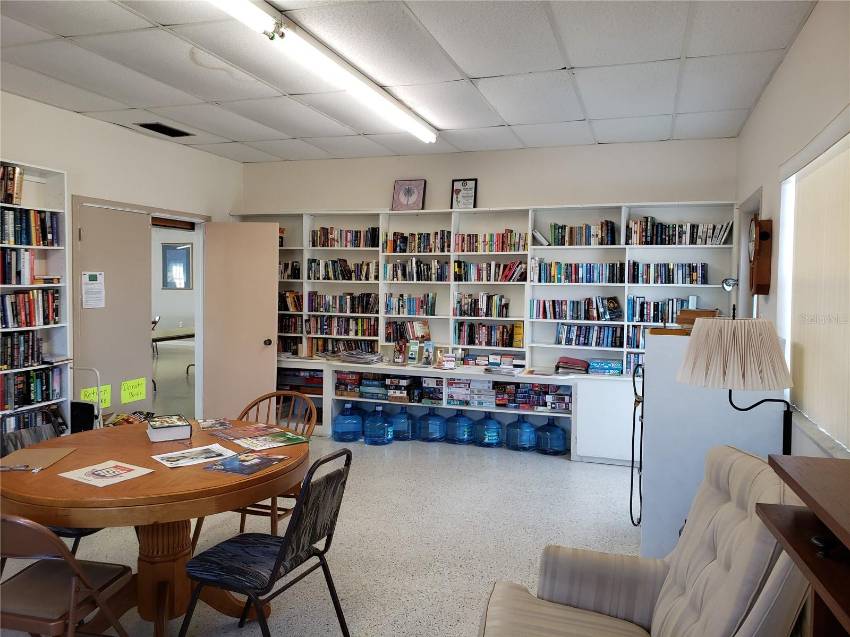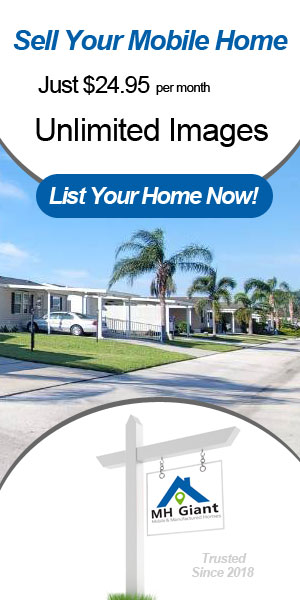In recent years, mobile and manufactured homes for sale have experienced a significant surge in popularity, emerging as viable and affordable housing options for individuals and families alike. This notable rise in interest can be attributed to several key factors.
One of the primary drivers behind the increasing popularity of mobile homes is their affordability. With soaring housing prices and the growing challenge of achieving homeownership, mobile homes provide a much-needed alternative for those seeking an affordable dwelling.
Table of Contents
1. Affordability
Lower Purchase Price, Lower Down Payment, Financing Options

One of the primary reasons behind the rising popularity of mobile homes is their affordability. Compared to traditional site-built homes, mobile homes generally come at a significantly lower price point. This affordability makes them accessible to a wider range of buyers, including first-time homeowners, retirees, and individuals looking for cost-effective housing solutions.
Lower Purchase Price
Mobile homes are generally priced lower than traditional homes of similar size and quality. This is primarily because they are factory-built in a controlled environment, allowing for economies of scale and efficient production processes. The reduced construction time and streamlined manufacturing contribute to lower labor and material costs, ultimately resulting in a more affordable home.
Lower Down Payment
Buying a mobile home often requires a lower down payment compared to traditional homes. This can make it easier for prospective buyers to enter the housing market, especially for those who may have limited savings or are looking to minimize upfront costs.
Financing Options
Various financing options are available specifically for mobile homes, further enhancing their affordability. Lenders specializing in manufactured housing provide loan programs tailored to the unique characteristics of mobile homes. These specialized loan programs often offer favorable terms and competitive interest rates, making it easier for buyers to secure financing and afford their dream mobile home.
The affordability of mobile homes stems from their lower purchase price, reduced down payment requirements, specialized financing options, lower property taxes and insurance premiums, energy efficiency leading to utility savings, and lower maintenance and repair costs. These financial advantages make mobile homes an attractive housing option for individuals and families seeking affordable homeownership and a more manageable cost of living.
2. Cost Savings
Mobile homes offer cost savings beyond the initial purchase price. Their construction and design often incorporate energy-efficient features that lead to reduced utility bills over time. With insulation, efficient windows, and energy-saving appliances, mobile homes minimize heat loss and heat gain, resulting in lower energy consumption for heating and cooling.
This translates into significant savings on utility bills, making mobile homes more budget-friendly in the long run.
Additionally, mobile homes tend to have lower property taxes and insurance premiums compared to larger, traditional homes. The reduced square footage of mobile homes leads to lower property tax assessments. Insurance premiums are also typically lower due to the smaller size and lower replacement cost of mobile homes. These financial advantages make mobile homes an attractive option for those looking to save money on ongoing expenses associated with homeownership.
3. Flexibility And Customization
Flexibility and customization are key advantages that mobile homes offer to prospective buyers. These homes provide a range of options when it comes to floor plans, sizes, and finishes, allowing individuals to personalize their living space according to their specific needs and preferences.
Mobile home manufacturers typically offer a variety of floor plan layouts, accommodating different family sizes and lifestyles. Whether you’re looking for an open concept design, multiple bedrooms, or a specific layout that suits your preferences, there are options available to meet your requirements.
Additionally, customization extends beyond the layout to the finishes and materials used in the mobile home. Buyers can often choose from a selection of interior finishes such as cabinetry, flooring, countertops, and paint colors. This enables homeowners to create a space that reflects their personal style and taste, making the mobile home feel truly their own.
The ability to customize a mobile home ensures that it meets the unique needs and aesthetic preferences of the homeowner. This flexibility allows individuals to create a comfortable and personalized living environment that suits their lifestyle and enhances their overall satisfaction with the home. Whether it’s adding specific features, modifying room layouts, or selecting finishes, the customization options available in mobile homes make them a versatile choice for buyers seeking a personalized living space.
4. Quick Construction And Installation
Mobile homes are typically manufactured in a factory-controlled environment, allowing for efficient and streamlined construction processes. The controlled manufacturing environment ensures higher quality control standards, leading to a structurally sound home. Additionally, the shorter construction time means less waiting and faster occupancy compared to traditional home building methods.
The manufacturing process for mobile homes involves the assembly of pre-built components and modules, which are then transported to the desired location for installation. Since the construction is not affected by weather conditions or external factors typically associated with on-site construction, mobile homes can be built quickly and reliably. This quick turnaround time means that homeowners can move into their new mobile homes within a shorter period, enjoying the benefits of homeownership sooner.
Additionally, the quick installation of mobile homes reduces the disruption and inconvenience often associated with construction projects. The site preparation, foundation installation, and assembly of the mobile home can be completed within a relatively short timeframe, minimizing the inconveniences and disruptions to the homeowner’s daily life. This efficiency is especially advantageous for those who need a prompt housing solution or prefer to avoid prolonged construction processes.
The quick construction and installation of mobile homes provide homeowners with the benefits of time efficiency, reduced disruption, and a faster transition into their new living space. This advantage, coupled with the affordability and customization options of mobile homes, contributes to their appeal as a convenient and accessible housing option.
5. Lower Maintenance And Repairs

One of the notable advantages of mobile homes is their lower maintenance and repair requirements compared to larger, traditional homes. Here’s a closer look at why mobile homes tend to have reduced maintenance costs:
- Smaller Size: Mobile homes are generally smaller in size compared to traditional homes. This compact size means there are fewer areas that require regular maintenance. With less square footage to manage, homeowners can save both time and money on cleaning, repairs, and upkeep.
- Simplified Systems: Mobile homes are designed with efficiency and simplicity in mind. The systems and components within mobile homes, such as plumbing, electrical, and HVAC systems, are typically more streamlined and straightforward. This simplicity often leads to fewer issues and a lower likelihood of complex and costly repairs.
- Factory Construction: Mobile homes are manufactured in a controlled factory environment using efficient and standardized construction methods. This controlled setting ensures higher quality control standards and adherence to building codes. Consequently, mobile homes tend to have fewer construction defects or structural issues, reducing the need for extensive repairs or renovations.
- Warranty Coverage: Many mobile home manufacturers provide warranties on major components and systems. These warranties often cover defects in materials or workmanship for a specified period. Having warranty coverage can significantly reduce out-of-pocket expenses for repairs and replacements, providing homeowners with added peace of mind.
- Affordable Materials: Mobile homes are often constructed using cost-effective materials that are durable and low-maintenance. These materials, such as vinyl siding, laminate flooring, and composite roofing, are designed to withstand the elements and require minimal upkeep. As a result, homeowners can save on maintenance costs associated with expensive materials or specialized repairs.
Mobile homes offer lower maintenance and repair costs compared to larger, traditional homes. Their smaller size, simplified systems, factory construction, warranty coverage, affordable materials, and regular maintenance practices contribute to these cost savings. Homeowners of mobile homes can enjoy the benefits of reduced maintenance expenses, allowing them to allocate their resources elsewhere.
6. Community Living
Mobile homes are commonly situated within communities specifically designed for manufactured housing. These communities often offer shared amenities such as parks, playgrounds, swimming pools, and clubhouse facilities. The sense of community and the opportunity to connect with neighbors make mobile home living an attractive option for those seeking social interactions and a supportive environment.
- Shared Amenities: Mobile home communities often offer a range of shared amenities and facilities. These may include parks, playgrounds, swimming pools, fitness centers, and clubhouse facilities. These amenities provide opportunities for residents to socialize, engage in recreational activities, and build connections with their neighbors. It fosters a sense of belonging and community spirit.
- Social Interactions: Living in a mobile home community allows residents to interact and form friendships with like-minded individuals. The close proximity of homes and shared common areas create opportunities for spontaneous social interactions. Whether it’s gathering for a community event, joining a club, or simply chatting with neighbors during a walk, community living provides a social support network and a sense of camaraderie.

Mobile home communities often create a supportive environment where neighbors look out for one another. Residents can rely on each other for assistance, whether it’s lending a helping hand with home maintenance, offering advice, or providing a sense of security.
- Community Activities and Events: Mobile home communities frequently organize various activities and events for residents. These may include holiday celebrations, potluck dinners, game nights, or organized outings. Such events provide opportunities for residents to come together, have fun, and create lasting memories. It enhances the overall community experience and strengthens the sense of belonging.
- Access to Resources: Living in a mobile home community often means having access to resources and services specifically tailored to mobile home living. These may include on-site maintenance and repair services, management staff, and community-specific amenities. Having these resources readily available can simplify homeownership and contribute to a hassle-free living experience.
- Safety and Security: Mobile home communities often prioritize safety and security measures. They may have gated entrances, security patrols, and well-lit common areas. This emphasis on safety provides peace of mind to residents, particularly those concerned about home security. Additionally, the close-knit nature of the community can create a neighborhood watch-like environment, where residents look out for each other’s safety.
- Sense of Pride and Ownership: Mobile home communities often foster a sense of pride and ownership among residents. The collective efforts to maintain and improve the community’s appearance create a sense of shared responsibility. Residents may take pride in their homes and the overall aesthetics of the community, contributing to a more attractive and well-maintained environment.
Community living is a significant aspect of the appeal of mobile homes. The shared amenities, social interactions, supportive environment, community activities, access to resources, safety measures, and sense of pride contribute to a fulfilling and enjoyable living experience. Mobile home communities offer residents the opportunity to forge connections, build relationships, and create a sense of belonging within a welcoming and supportive neighborhood.
7. Summary
The rising popularity of mobile homes as affordable housing options can be attributed to their affordability, cost savings, flexibility, quick construction, lower maintenance needs, community living, mobility, environmental considerations, specific financing options, and their contribution to diverse housing solutions. These factors collectively contribute to the appeal and increasing market presence of mobile homes as an attractive housing alternative.
Mobile home living also provides a sense of community and belonging. Residents can enjoy shared amenities, engage in social interactions, and participate in community activities and events. The supportive environment and access to resources tailored to mobile home living enhance the overall living experience. Additionally, mobile home communities prioritize safety and security, creating a sense of peace and tranquility for residents.
By considering these key aspects, potential buyers can make informed decisions, ensuring a successful and rewarding purchase. Mobile homes offer a practical and affordable housing solution while providing opportunities for a fulfilling and enjoyable community-oriented lifestyle.

 This translates into significant savings on utility bills, making mobile homes more budget-friendly in the long run.
This translates into significant savings on utility bills, making mobile homes more budget-friendly in the long run.